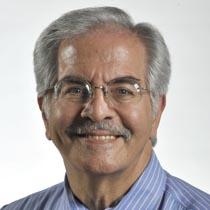Back in the day — when I toiled at a daily newspaper — I actually had the following exchange with a reader of the paper who had submitted a letter to the editor and asked me to publish it.
Me: Are you sure about your facts here? This stuff looks kind of fishy to me.
Reader: Of course I’m sure. It’s the truth. I got it on the Internet.
Suffice to say we didn’t publish the individual’s letter.
The Internet is a lot of things. The purveyor of the whole truth all the time, though, is not one of them.
Breitbart.com posted a story that has Amarillo abuzz with concern. It describes the city as a haven for Middle East refugees and that the city is being “overrun” by them.
Not so, says Mayor Paul Harpole.
I’ve got to give Amarillo Globe-News reporter Kevin Welch huge props for exposing this nonsense.
Harpole said the city is working to control all immigrants, which include refugees. The issue isn’t limited to just those fleeing bloodshed and misery in the Middle East.
But according to the Welch’s story, Brietbart.com and some other conservative websites are disseminating bogus “information” about the state of affairs in little ol’ Amarillo, Texas.
It’s been a given for years that Amarillo has been a magnet of sorts for immigrants. Community faith-based and secular organizations have done a lot over the years to welcome immigrants, as Welch reported.
The city, though, isn’t being swarmed, swamped and swallowed up by hordes of refugees, as some Internet sites have said.
The fallacy of this kind of alleged “reporting” contains several lessons.
One of them ought to become required of all who consume news and commentary. It is that the Internet is a source for fiction far more frequently than it is a source for fact.









